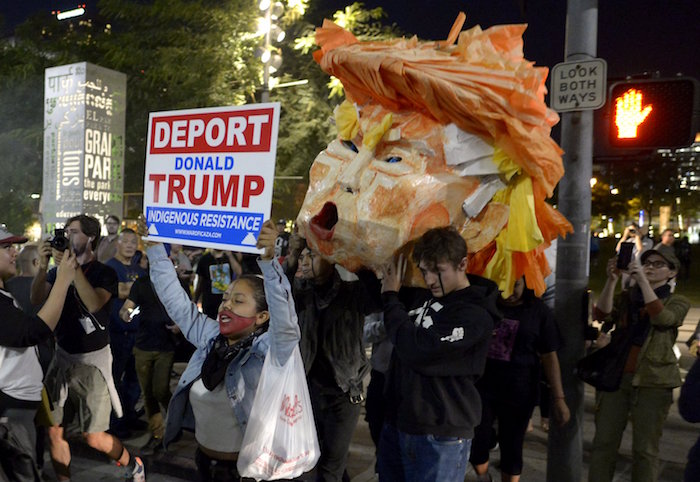It is much too early to say to what extent President Trump will enact his campaign promises as government policy and, indeed, how much he will actually be able to do in office. But every day since his election demonstrations have sprung up throughout the United States to express outrage, apprehension and dismay.
Moreover, there is no doubt that once in office Trump and his administration will continually do and say things that will inspire protest. For at least the next four years people in the US will rally and march against his government, regularly and in large numbers. Protesting against threats to the environment will undoubtedly be urgent, as will be the generalized atmosphere of violence against people of color, women, LGBTQ populations, migrants, Muslims, workers of various sorts, the poor — and the list goes on.
One of the potential pitfalls for social movements, however, is that activism goes no further than protest. Protest, of course, can bring a city to a halt, can block temporarily the action of the government, and can even play the crucial role of opening up spaces for political alternatives. But on its own, protest is never enough to create lasting social transformation.

